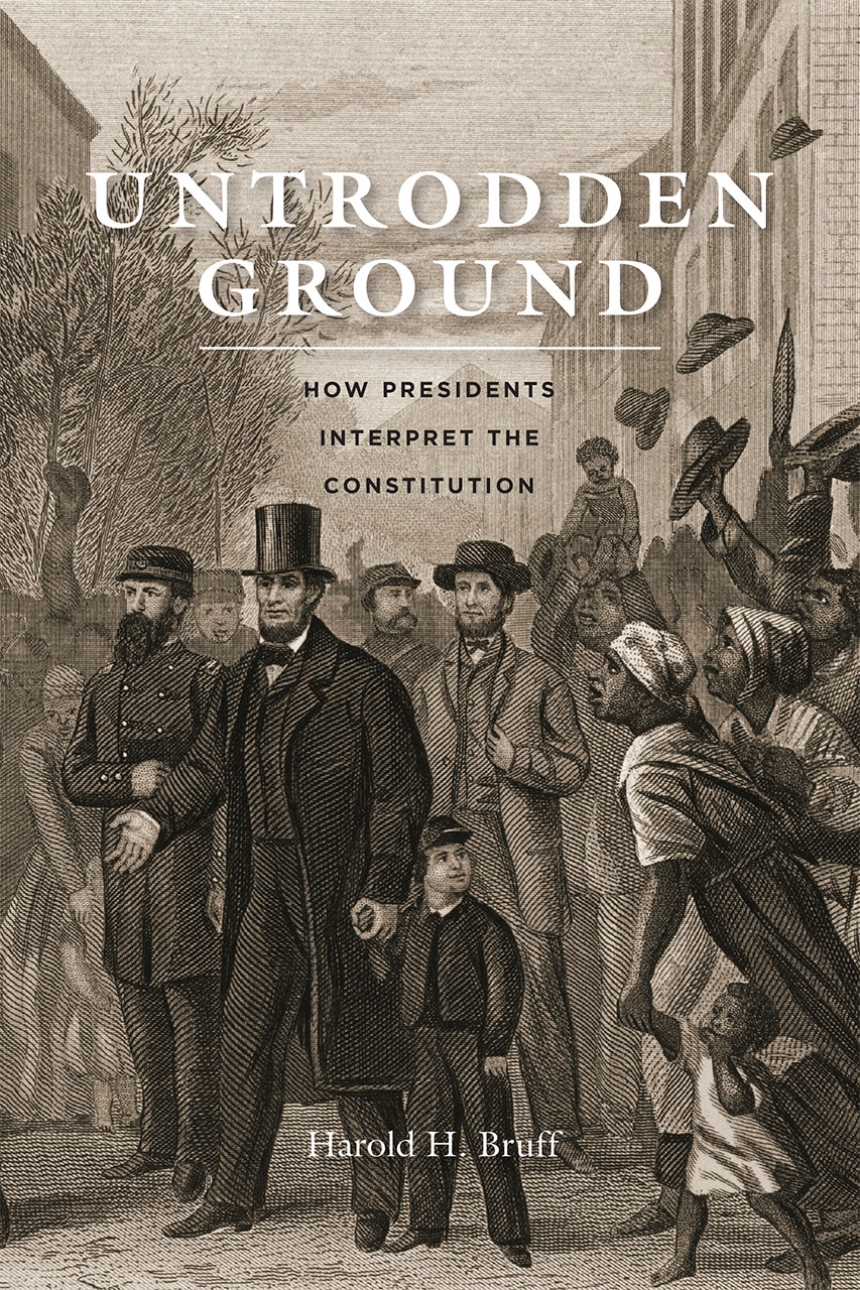Untrodden Ground
How Presidents Interpret the Constitution
Untrodden Ground
How Presidents Interpret the Constitution
Reviewing the processes taken by all forty-four presidents to form new legal precedents and the constitutional conventions that have developed as a result, Harold H. Bruff shows that the president is both more and less powerful than many suppose. He explores how presidents have been guided by both their predecessors’ and their own interpretations of constitutional text, as well as how they implement policies in ways that statutes do not clearly authorize or forbid. But while executive power has expanded far beyond its original conception, Bruff argues that the modern presidency is appropriately limited by the national political process—their actions are legitimized by the assent of Congress and the American people or rejected through debilitating public outcry, judicial invalidation, reactive legislation, or impeachment. Synthesizing over two hundred years of presidential activity and conflict, this timely book casts new light on executive behavior and the American constitutional system.
550 pages | 6 x 9 | © 2015
Law and Legal Studies: The Constitution and the Courts
Political Science: Judicial Politics
Reviews
Table of Contents
Introduction: Only a Necessity
Part I. Durable Consequences
Chapter 1. Responsibility: The Constitution
Chapter 2. Summoned by My Country: Washington and Adam
Chapter 3. The Fugitive Occurrence: Jefferson and Madison
Part II. A New Nation
Chapter 4. Independent of Both: Jackson, Tyler, and Polk
Chapter 5. A Rough Time of It: Lincoln
Chapter 6. Unmindful of the High Duties: Andrew Johnson
Part III. Steward of the People
Chapter 7. Facing the Lions: McKinley, Theodore Roosevelt, and Wilson
Chapter 8. What Must Be Done: Franklin Roosevelt
Part IV. One Single Man
Chapter 9. Going to Hell: Truman and Eisenhower
Chapter 10. Bear Any Burden: Kennedy and Lyndon Johnson
Chapter 11. Not Illegal: Nixon, Ford, and Carter
Part V. A New Era
Chapter 12. First a Dream: Reagan
Chapter 13. The Vision Thing: George H. W. Bush and Clinton
Part VI. Deciders
Chapter 14. No Equivocation: George W. Bush
Chapter 15. The Last Mile: Obama
Conclusion: The Stream of History
Notes
Index
